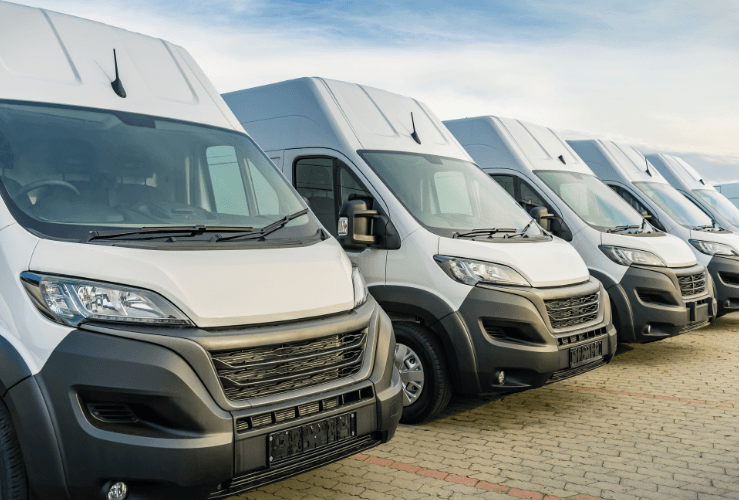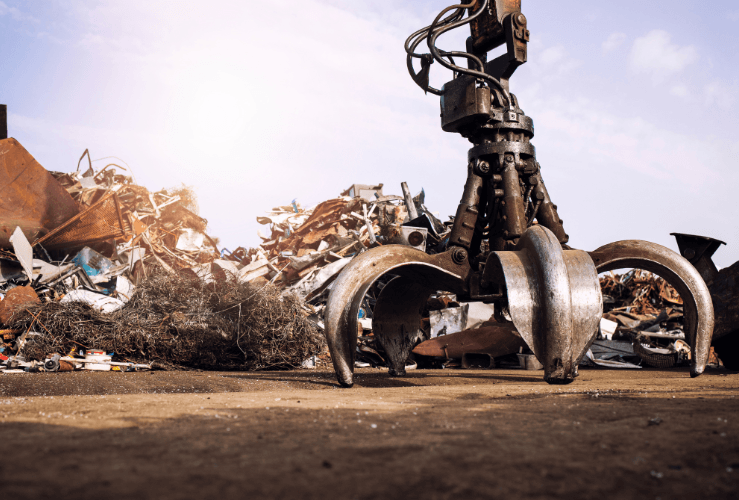From showroom to scrapyard—learn about the different stages of vehicle lifecycle fleet management.
As a fleet manager, you could be handed responsibility for different stages in the lifecycle of a given vehicle, from choosing the right model for your company's needs and practising preventative maintenance while it is in use, to disposing of it in an environmentally conscious way at the end of its life.
In this guide, we walk you through the challenges you’re likely to face in this key aspect of fleet planning.

Fleet vehicle acquisition
Purchasing vehicles for your fleet - whether due to service expansion or vehicle replacement needs - is the most expensive aspect of running a fleet (alongside fuel costs). As such, the acquisition process demands careful thought and research.
What kind of vehicles do you need for current business operations?
It goes without saying that you need to invest in vehicles that can handle your current operations. Factors to consider include:
- Capacity (you don’t want too much or too little for your operational needs)
- Powertrain type (is now the time to go electric?)
- Fuel consumption (if fuel-based)
- Range (if electric)
- Emissions (if fuel-based)
- Reliability
Smart fleet planning: What kind of vehicles do you need for the future?
If your company has solid plans to expand, you need to ensure the fleet vehicles can handle any new responsibilities or capacity requirements.
For example, future business goals may include delivering nationally instead of just locally, in which case the fleet would need to accommodate this.
What is your budget?
Naturally, cost will be a consideration. You'll need to balance the practical needs of your business with allocated funds.

Should you lease or buy?
Leasing vehicles usually requires less initial capital than buying outright and deals may include vehicle maintenance and repair services.
That’s not to say there isn’t benefits to buying vehicles for your fleet outright. Find out more about the pros and cons of buying and leasing fleet vehicles.
Consult your drivers
Your current drivers may prove invaluable in helping you decide which vehicles to purchase since they are on the front line of operations.
Consider if proposed vehicles will help them do their job better without creating new problems such as loss of rider comfort or, with EVs, range issues.
However, be ready for any ‘pushback’ - since new technologies and methods are not always welcome, even if they promise to take the firm forward.
Consider legislation
In the UK, sales of new petrol and diesel vehicles will not be permitted after 2035. Given that vehicles tend to last 10-15 years, any new consignment of petrol or diesel vehicles may be your company's last.
You have the choice of sticking with older powertrains or adapting to electric vehicles ahead of time.
Consider congestion charges/ULEZ, etc.
If your operations take place largely in a city that charges for the use of some polluting vehicles (London ULEZ being a prime example), it might make economic sense to choose a zero-emission vehicle, despite the higher initial outlay.
Think about going electric
As regards long term fleet planning, purchasing electric vehicles for your fleet could make economic sense, primarily due to the lower running costs (and avoidance of congestion charges, as explained above).
Think about resale value
It’s also worth considering how well a particular model keeps its value since it will have a direct impact on your company's bottom line if you decide to sell it.
Decide if buying used is an option
In some cases, purchasing second hand models could prove to be smart fleet management.
Reasons for buying a used vehicle include:
- Budgetary constraints: buying used is much cheaper than buying new
- The fleet needs a 'stopgap' vehicle before a wider replacement. e.g., a second hand petrol van might suffice for the years before the fleet goes electric.
- Some specialist vehicles may be more easily (and certainly more cheaply) found on the used market.

Utilisation and preventative vehicle maintenance
The next stage is general operation—using your vehicles to carry out your firm's day-to-day activities.
You and your drivers will need to ensure the vehicles are operated in a safe and efficient manner.
Additionally, preventative vehicle maintenance - the process of monitoring and maintaining vehicle health on an ongoing basis - is critical to help prevent small faults developing into larger, more expensive ones.
Fleet management software can prove invaluable for this, particularly when managing multiple vehicles.
Data analysis and monitoring
Data analytics software can assist in staying on top of maintenance tasks, as well as fuel efficiency and vehicle performance. It can also help ensure your drivers are using their vehicles safely and with a view to extending assets’ lifespan (e.g., avoiding hard braking and acceleration and adhering to the most efficient routes).
Preparing for replacements
It's important to have a process in place for monitoring when a vehicle may be coming to the end of its operational life.
Mileage, age, condition, maintenance costs and changes to the way your fleet operates should all be considered when choosing new fleet vehicles.
Naturally, this process should occur sometime before a vehicle's expected retirement date. This is especially true if you purchased several vehicles of the same type at the same time -because you might be faced with multiple failures if you don’t organise replacements in advance.

Disposal of a vehicle from your fleet
Your company may wish to dispose of a vehicle for a number of reasons, including:
- It is old and needs to be replaced
- It has suffered damage
- It no longer meets the needs of your fleet
- It costs too much in congestion/ULEZ charges
Ways to dispose of a vehicle
- Sell privately
- Sell to a dealer
- Sell at auction
- Donate to charity
- Scrap it and keep parts for other vehicles
- Scrap it and don’t keep any parts
Which of these you choose will depend on various factors, such as:
- Time: e.g., selling to a dealer will be quicker than selling privately but will probably result in a lower price.
- Condition: Can the vehicle be used by someone else, or is it only good for scrap?
- Money: You need to balance the potential revenue from a sale with the resources needed to sell. e.g., a private sale will likely result in a higher price but might take staff away from other duties.
Environmentally-conscious disposal
If you decide to dispose any vehicles from your business fleet, consider ways to dispose of vehicles that have minimal negative impact on the environment.
Scrap yards are known officially as ATFs - authorised treatment facilities - and can be found on the UK government’s scrapyard search portal.
If you decide to take parts from a vehicle to be used as spares, ensure this is done so in a way that doesn't harm the environment - e.g. causing oil to seep into the ground.



